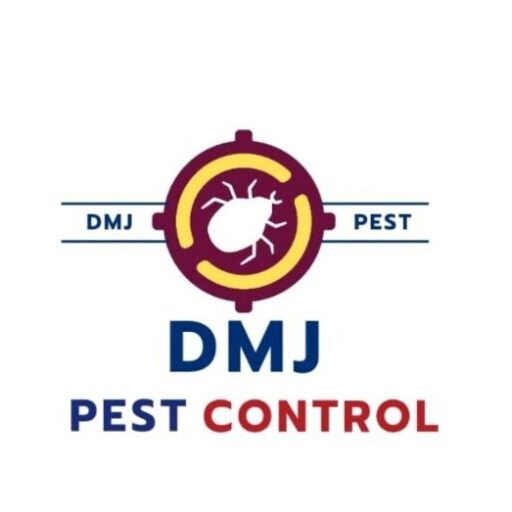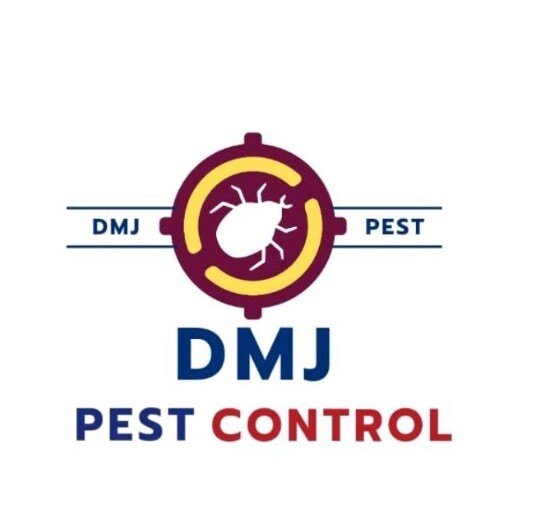Why Every Restaurant in India Needs Regular Pest Control – FSSAI Requirements Explained

Introduction
Pest control isn’t optional for your restaurants.
It’s a legal and hygiene requirement under FSSAI rules. One pest can shut your restaurant down.
In this blog, DMJ Pest Control explains what pest control steps you must follow to stay away from complaints, stay safe, and be ready for inspections by FSSAI anytime.
This is not about inspections and some legal stuff. Keeping your restaurant’s hygiene is an essential thing. Consumer trust is very important for every restaurant.
📜 2. FSSAI Guidelines with Pest Control in Restaurants
FSSAI clearly states that every restaurant must have a proper pest control system in place.
The key requirements are:
- Pest control must be done only by licensed professionals.
- Only FSSAI-approved chemicals should be used.
- Pest control treatment should not contaminate food or surfaces.
- Restaurants must keep written records of:
- Pest control company
- Technician details
- Chemicals used (with Material Safety Data Sheet)
- Application method and schedule
Download a Free Pest Control Checklist for Restaurants.
Key Law: Chemicals used must be registered under the Insecticide Act, 1968 and Environment Protection Act, 1986.
World Health Organization view on pesticide residues in food.
At DMJ Pest Control, we help restaurants stay 100% FSSAI-compliant. With safe, government-approved treatment and full records ready anytime.
3. Pest Control Program in Restaurant – as per FSSAI
🧾 FSSAI Pest Control Program Includes:
- Pest Identification – Know which pests are present in the restaurant (e.g., cockroaches, flies, rodents).
- Treatment Area Mapping – Areas or locations where pest control has to be applied.
- Right Control Method – Choose physical, chemical, or biological based on pest type.
- Chemical Use – Only use approved chemicals. Follow the MSDS (Chemical Material Data Sheet) for dosage.
- Scheduled Treatments – How often each area needs a pest control treatment.
- Trained Technicians – Only licensed professionals should perform pest control in restaurants.
- Record Keeping – Maintain records of technician name, date, chemical, and dosage.
4. 4D Principle-Based Pest Control Program

DENY ENTRY
Entry should be denied by sealing all opening or gaps in the restaurant area.
DENY SHELTER
Denying insects shelter and not giving them a place to live.
- Cleaning all the waste.
- Covering unused machines.
- Regularly cleaning the premises.
DENY FOOD
The pest should be denied food to survive.
DESTROY
This is the final and important step to destroy them from root cause entry with proper. treatments:
- Physical
- Chemical
- Biological
5. Pest-Specific Control Methods

Cockroaches
Cockroaches are the most common pests found in restaurants.
- Cockroaches breed in warm places, around 26 degrees C higher or with 65% humidity or higher.
- Cockroaches hide in cracks and crevices and often attracted to surfaces spilled with food.
Control mesures for Cockroaches ..
- Check all equipments in the restaurant, such as microwave ovens and electric grills for any left over particles
- Inspect and clean all food preparation equipment and surfaces and remove food particles from drains.
- Every pest control company must use FSSAI recommended chemicals to treat all cracks and crevices.
- Use permitted insecticides only after business hours (mostly at nights)
- Maintain good sanitary conditions at the restaurant premises.
- Make all dustbins covered.
- Install cockroach traps over the drains and ensure good lighting and ventilation as cockroaches damp and dark places to breed
➡️ Read more about cockroach control

Rodents
Rodents usually damage food and properties and also spread diseases through their faeces and urine or by contact with the surfaces.
Rodents usually gain entry through open drains, doors, windows, ventilators, openings around water pipes, sewers etc. So, Installation of mechanical traps around such entry points are an effective way of denying them access into the premises.
Control Measure of Rodents
- Install tight fitting Windows
- Keep all the drains covered with mesh
- Inpecting all the holes and cracks and seal them.
- Setting up lethal traps, such as sticky traps and regular snap traps where rodent infestation has already occured
- Mechanical rodent traps include “live traps”, which must be checked daily and rodents should be removed as soon as possible.
RODENT Baiting
- Poison baits can be used both indoor and outdoor
- If indoor baits are used, then the rodent could die within the premises. So, careful tracking of the baits is very essential in restaurant pest control.
- Rodents prefer to travel along walls. So, placing the baits where the rodents are likely to move and areas where they search for foods.
- If a bait is put in a public space then it is important to put us a securty bait station for the baits installed

Flies
Flies are the common pest associated with foods.
The main three types of flies are:
- The Garbage fly (this includes the housefly, green and coppery colored flies which is commonly seen near the garbages)
- Fruit flies (Which is found near spoiled fruits and vegetables)
- Drain flies (breed in floors or sink pipes
Control measures for flies
- Maintaining proper sanitzation
- Keep all food areas clean and dry
- Clean all spill around beverages and dispensing stations
- Cleaning drains to prevent the build of sludge.
- Check and clean refrigerator.
- Install light traps both indoor and outdoor to trap flies
- They should be mounted 4-6 feel off the ground.
- Keep all the food wastes in tightly covered bins
- Clean garbage bins regularly

Stored Product Pests
- Indian meal moth which is small moth with coppery colored wings which is the most common pest in stores food products
- Flour and grain beetles – These insects attact a wide variety of flour items such as flour, spices, pasta and cereals are the favourites.
Food Products contaminated with these insects are unfit for consumption.
Tiny holes in cereals along with powdery residue are the signs of infestation.
Control Measures for Stored Product Pests
- Keep food establishment, equipment in good working order to prevent pest access
- Eliminate Potential breeding sites of pests
- Store food in pest-proof containers above the ground and away from walls
- Treat with FSSAI approved chemicals that ensures food safety
- Maintain records with pesticides or insecticides used along with date and frequency.

🐜 Ants
- Ants cause immense damages to food and transmit disease through their excrement make food unfit for consumption
- They nest in spaces betwween walls under floors and in undisputed litter in the outdoor and ants prefer sweet and salty foods.
Control Measures
- Maintain sanitary practices in the premises
- Keep food covered and in air-tight containers
- Apply pesticides wherever necessary
6. FSSAI Pest Control for Restaurants Checklist
| Requirement | Must Be Documented |
|---|---|
| Pest Identified | ✔️ |
| Chemicals Used (MSDS) | ✔️ |
| Frequency & Dates | ✔️ |
| Name of Technician | ✔️ |
| Pest Control Company | ✔️ |
| Method Used | ✔️ |
| Area Treated | ✔️ |
| Waste Disposal Log | ✔️ |
🤝 7. How to Choose the Right Pest Control Company
- Government-certified Company
- Uses FSSAI & EPA-approved chemicals
- Offers AMC (Annual Maintenance Contracts)
- Provides trained technicians
- Maintains proper documentation & audit support
- Has experience in restaurant pest control
- Offers odourless treatment options for safer indoor pest control.
📞 DMJ Pest Control Chennai offers all this and more.
📌 8. Conclusion
FSSAI doesn’t just suggest pest control — it makes it mandatory. If you run a restaurant in India, keeping pests out isn’t optional. It’s the law. It’s also key to protecting your food, your customers, and your reputation.
That’s where DMJ Pest Control Chennai comes in. We provide FSSAI-compliant treatments, maintain proper records, and send trained professionals — so your restaurant stays clean, safe, and inspection-ready.
Frequently Asked Questions (FAQ)
At least once every month or fortnight depending on infestation risk.
It’s better to do it after hours using odorless, food-safe treatments.
Any queries related this blog drop an email at jabesh@dmjpestcontrol.com


